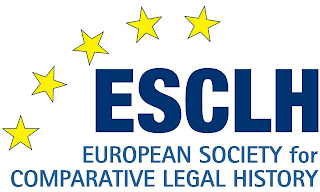International Conference organised by the Centre for Historical Research and Documentation on War and Contemporary Society (Cegesoma, Brussels), IRHIS (Université de Lille 3), CHDJ (Université catholique de Louvain) and Vrije Universiteit Amsterdam
3-day conference, in English and French, to be held in Brussels, in September 2011
Organising Committee : D. Luyten (Cegesoma), S. Faber (VUAmsterdam), H. Leuwers (Lille3), X. Rousseaux (UCL), M. De Koster (UCL/UGent/VUAmsterdam)
With the support of the Interuniversity Attraction Pole “Justice & Society: Socio-political History of Justice Administration in Belgium, 1795-2005” (Belgian Science Policy)
War and revolutions generate transformations of judicial institutions and practices, and bring about shifts in the occupation of positions within different sections of the judicial system, which then often undergoes expansion. These transformations can either have lasting effects or only be temporary, in which case the former judicial system is restored. Such restauration can be complete, but often the phase of war and occupation will remain to have an impact, because certain changes are consolidated, because it is no longer possible to simply restore the previous situation, or because new elements are embedded into the former system. War and revolutions are times and contexts of exception, that bring about exceptional measures, or in other words: fundamental innovations. These innovations can be import products from other countries or judicial systems, or can spring from doctrines and ideologies that differ drastically from, or even inverse formerly prevailing ideas and values, in which case the question arises to what extent innovation was merely a discursive shift.
This introductory sketch of the subject brings us to the following subthemes, which will structure the conference:
1) Changes in the judicial system: The focus here is not that much on legal changes, but rather on innovations reflecting fundamental shifts in the concept and system of justice, and that have been imported from other systems, states or ideologies. Central points of attention are the degree of innovation, the process of transfer and circulation of models and ideas, and the actors shaping and steering this process. One might consider, for example, nationalization measures in Eastern Europe and the appearance of various forms of patrimonial and fiscal sanctions, which have recently been the object of a growing body of research. Wars and revolutions also generate entirely new problems, that are impossible or very difficult to solve with the ‘normal’ judicial instruments and instead demand original solutions that, then, appear as ‘strange’ or external to the initial justice system. Within the context of this conference, particular attention needs to be paid to the heritage of the French Revolution.
2) Changes in practices: Here, the different institutional bodies making up the judicial world and their actual practices are at the centre of the attention. Did revolutions and wars bring about structural changes in the organisation and functioning of the courts, the penitentiary sector and crime control agencies? Or did other institutions or organs take on tasks that under normal conditions are executed by the justice system? On the other hand, questions should also concern the subjects and clients of the different judicial bodies: how did the context of judicial crisis and change alter their interactions with the justice system? This point refers to the blurring of boundaries between traditional categories of tolerable/intolerable, legal/illegal and good/bad behaviour at times of occupation and war, but also to possibly different uses of justice by civilians in such contexts.
3) Changes in judicial personnel and judicial professions: here the question is raised whether or not wars and revolutions brought about significant lasting changes in the personnel structure of the justice system and in the occupational position of the actors of justice (magistrates, lawyers, ministers of Justice, police forces, pentitentiary personnel, etc.). Which changes were aspired (political-ideological, legal doctrines, democratization, gender-dvision…), and which were actually translated into practice? Which mechanisms were activated en which were the central dynamics of the process of change? Here, the question of ‘purification’ initiatives and mechanisms, for example, deserves particular attention.
In terms of geographical focus, the whole of Europe is taken into consideration; papers on Eastern or Mediterranean Europe are particularly welcome. All judicial domains can be treated, but priority is given to the civil law domain (f.e. property law, civil law policy) on the one hand, and to penal law, the criminal justice sytem and all directly related and interdependent fields of justice (fiscal law, juvenile justice system, etc.) on the other. As time frames, the periods from 1795 to 1815, from 1914 to 1920, and from 1939 to 1950 have been chosen.
We hope that this project will meet with a wide response and will stimulate a lively debate.
Proposals for papers (maximum 500 words, accompanied by a short CV) are to be sent before 15 December 2010, via e-mail to dirk.luyten@cegesoma.be & margo.dekoster@uclouvain.be
The proceedings of the conference will be published.
















